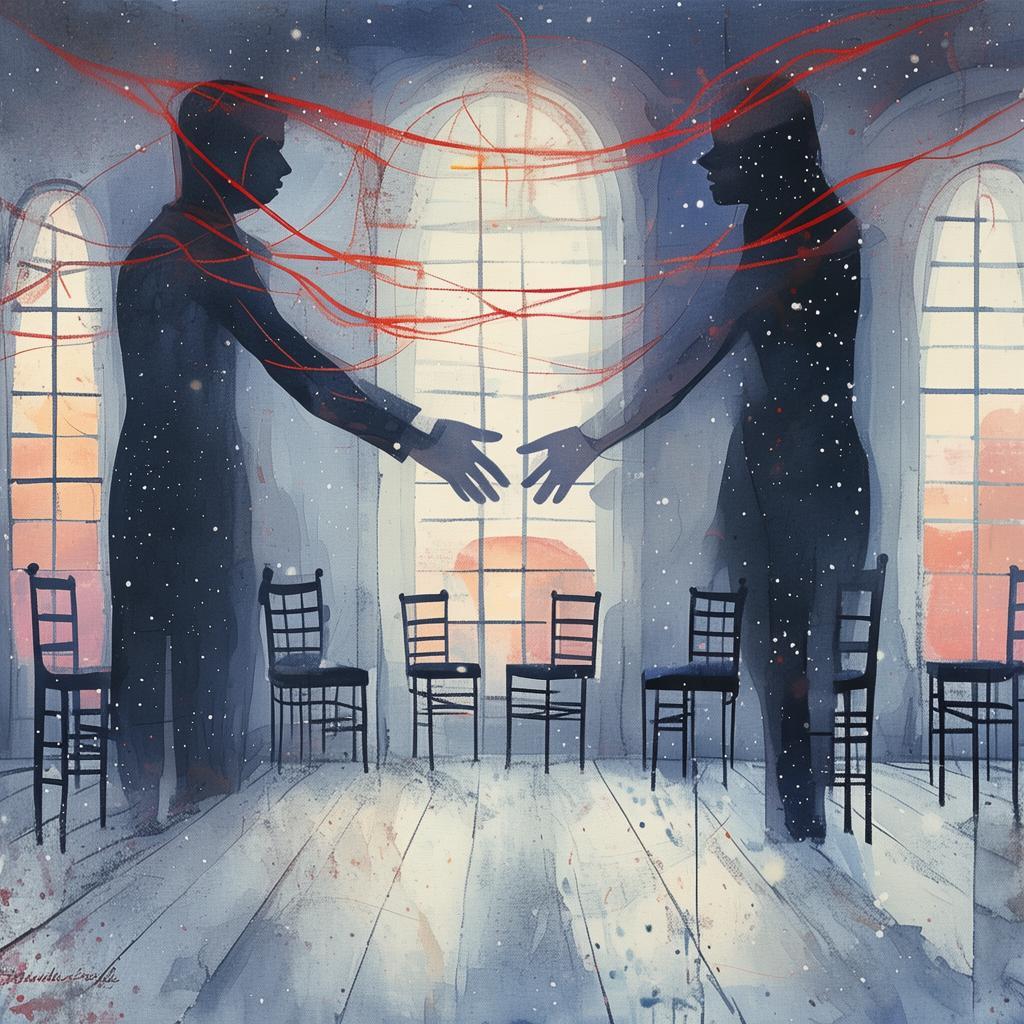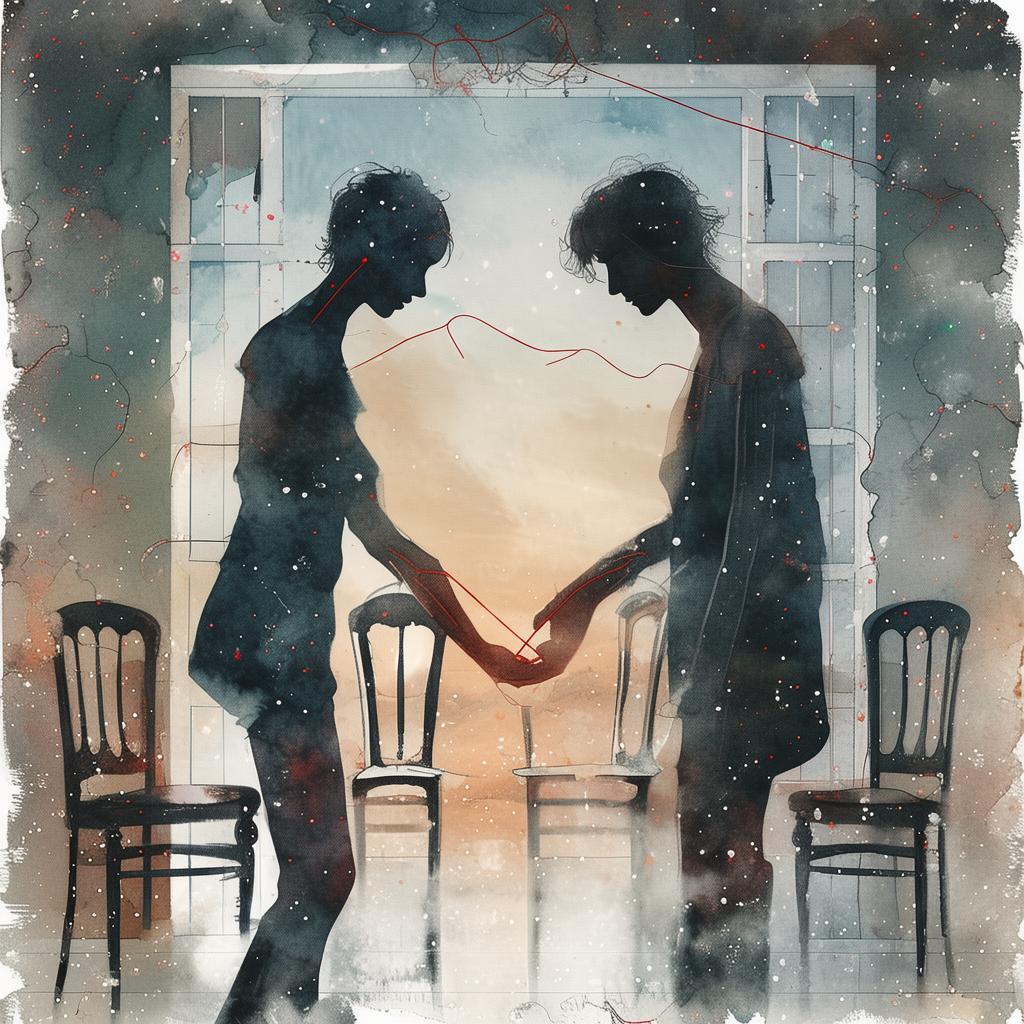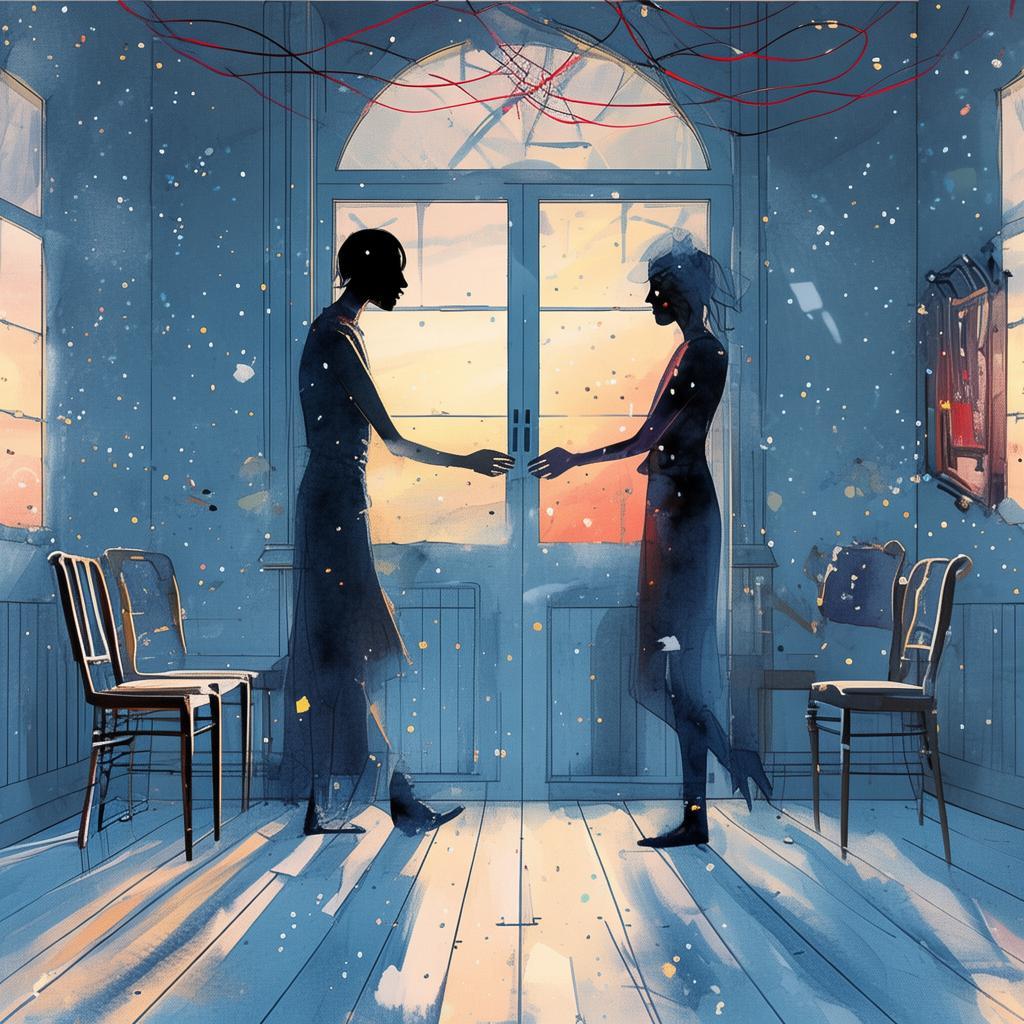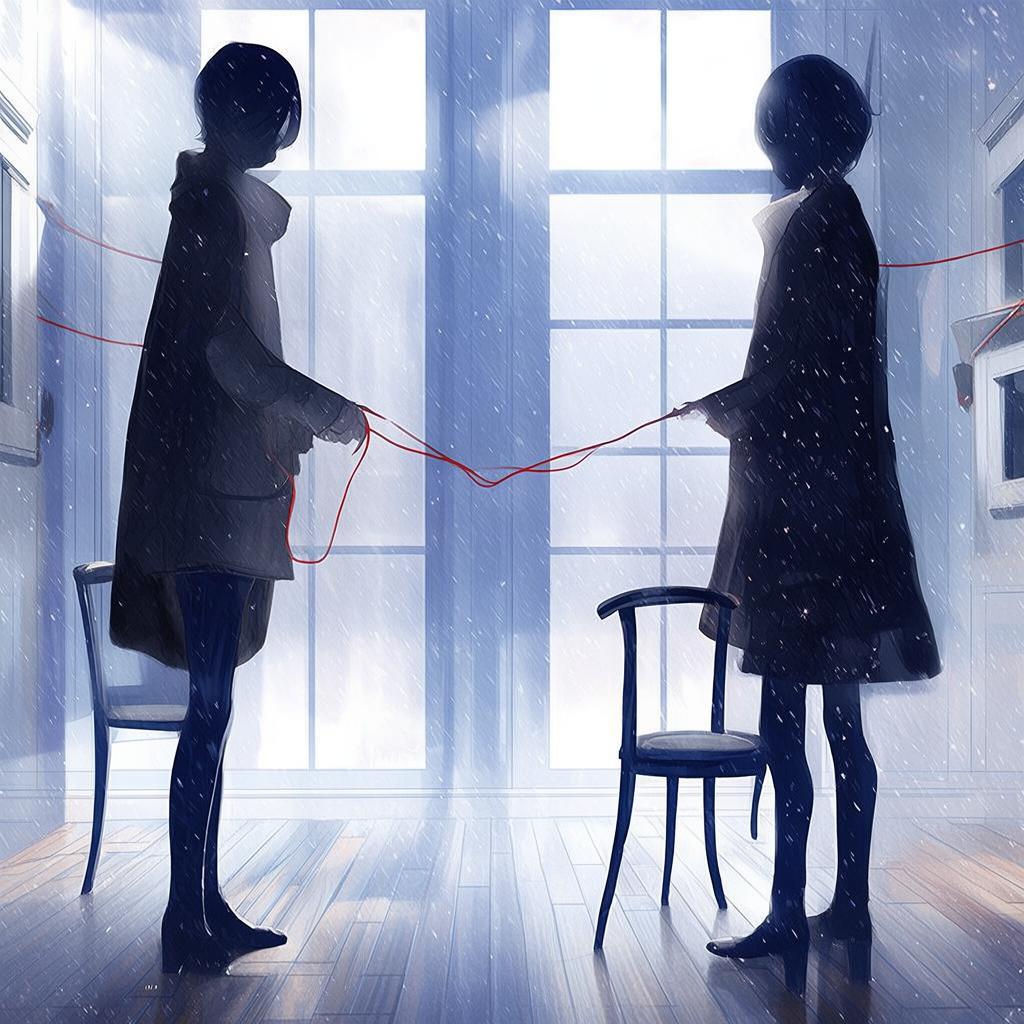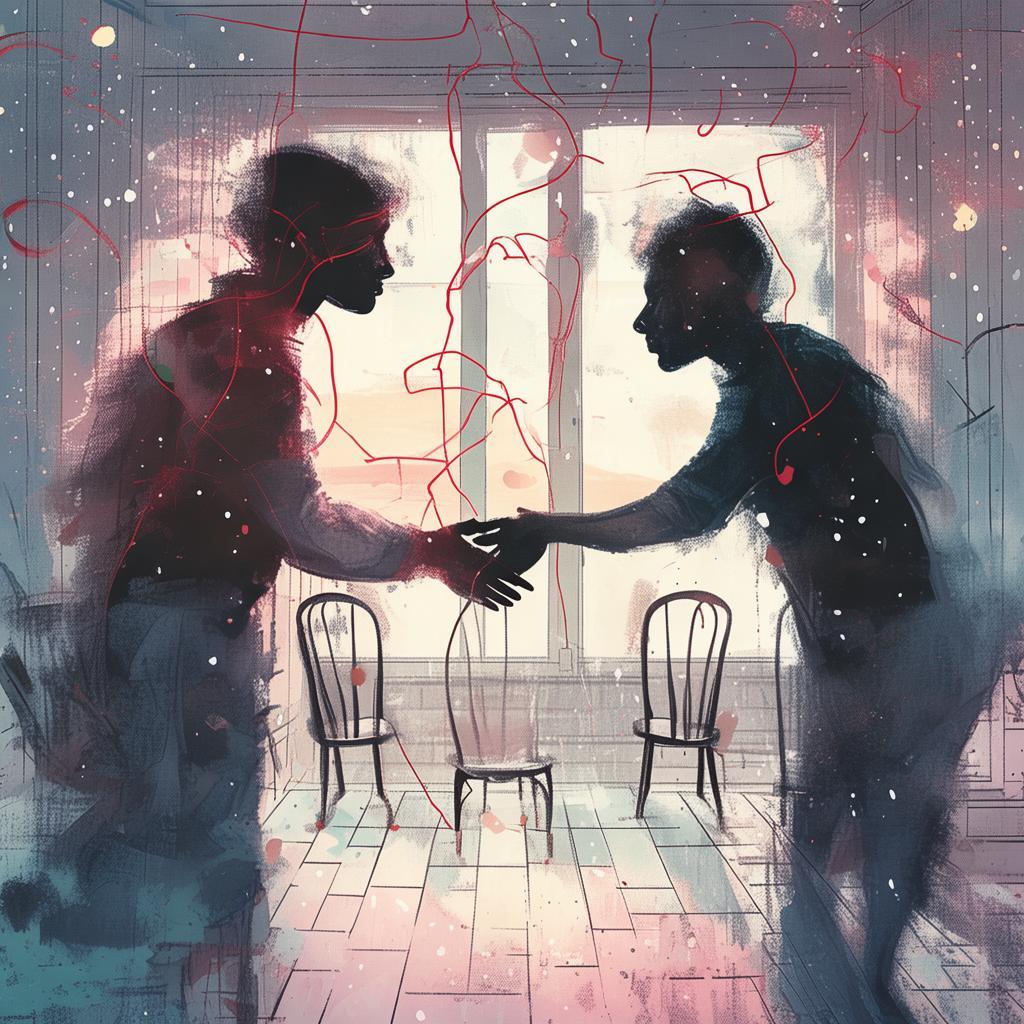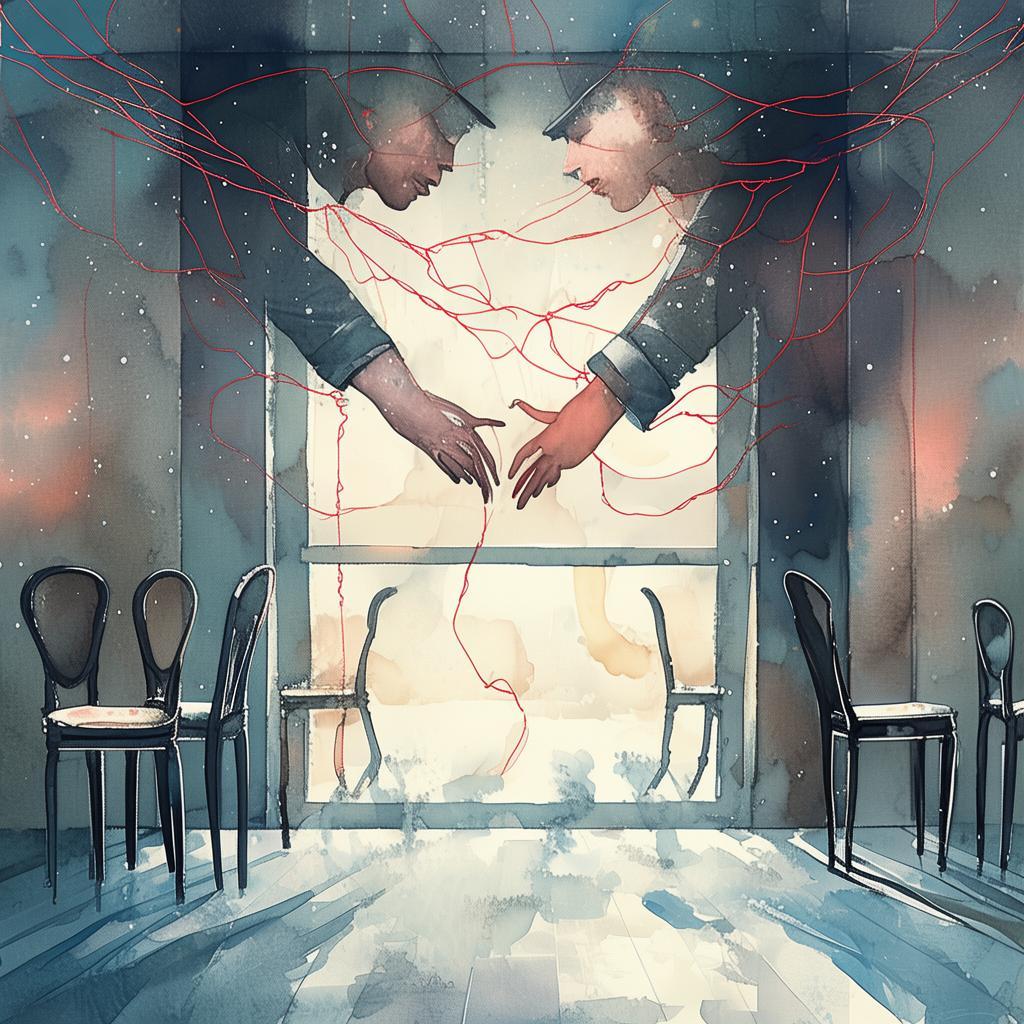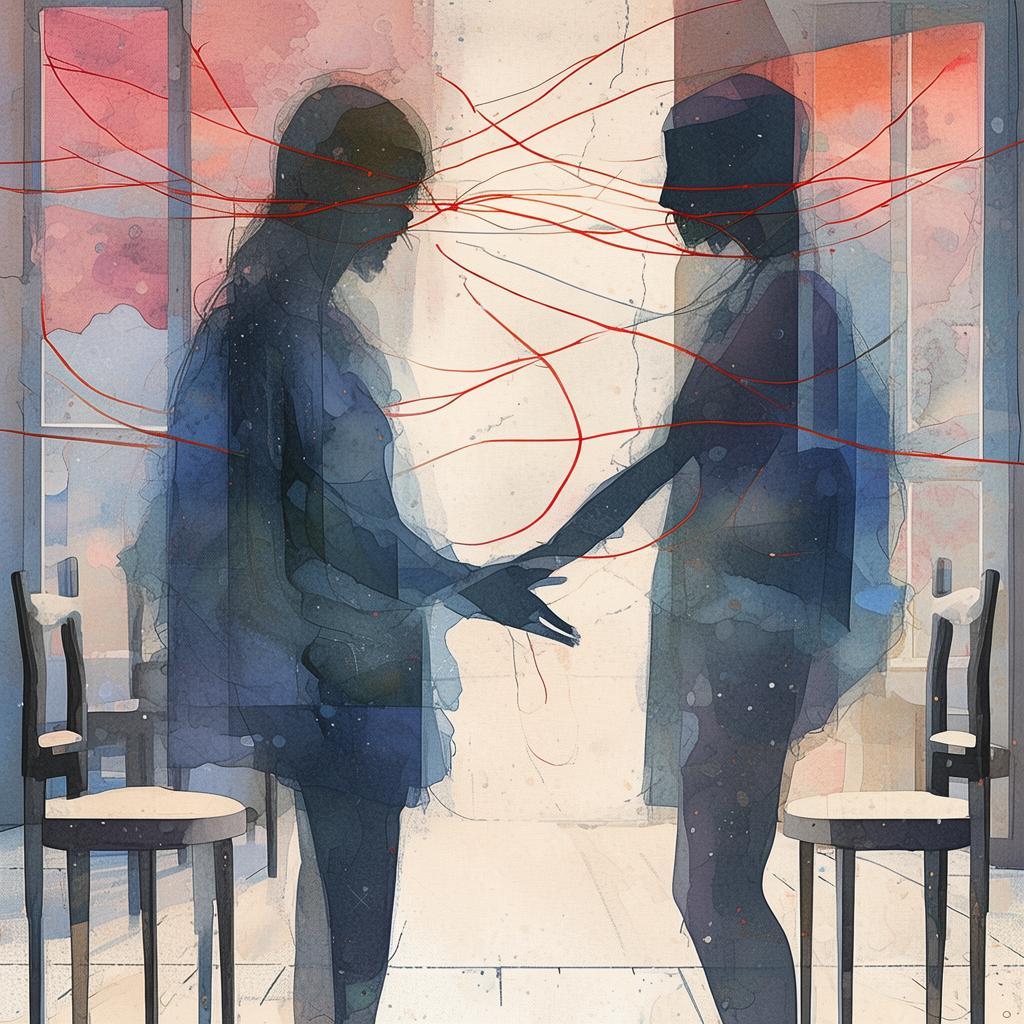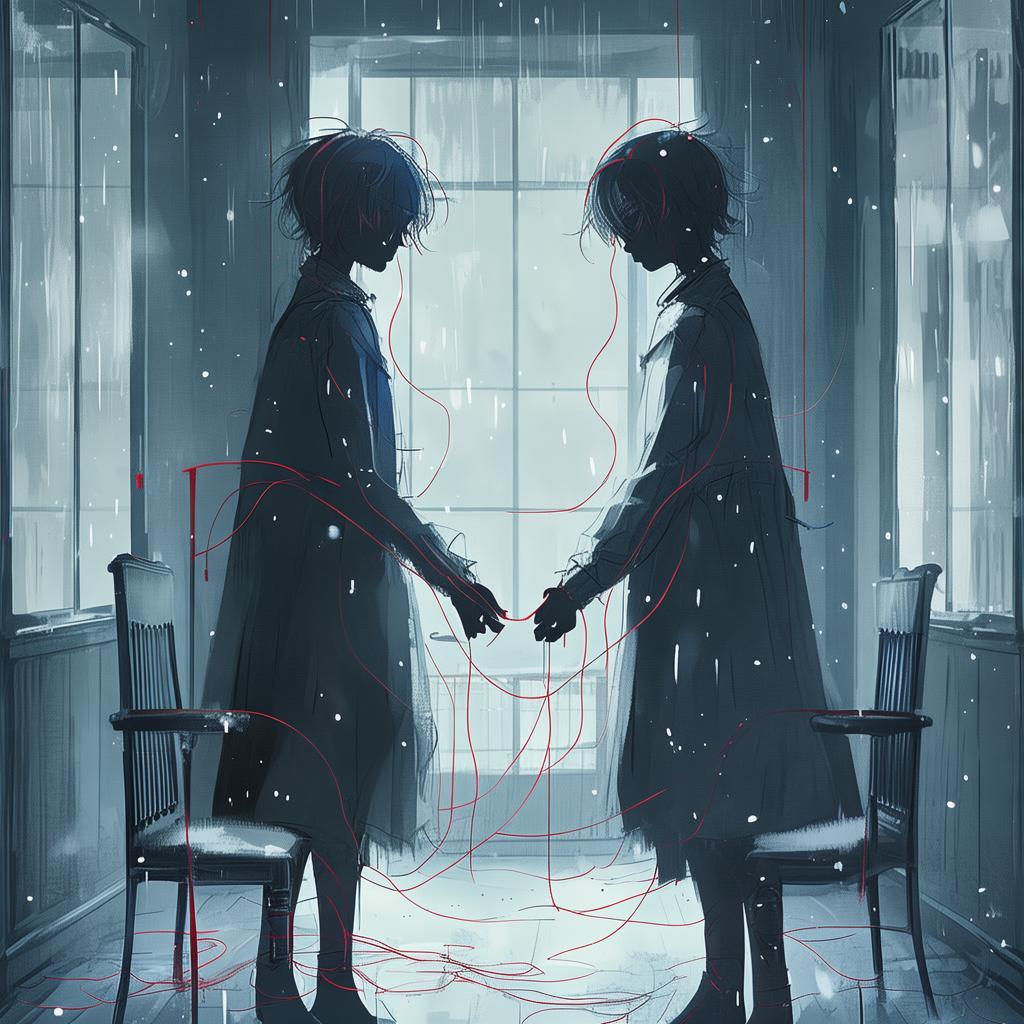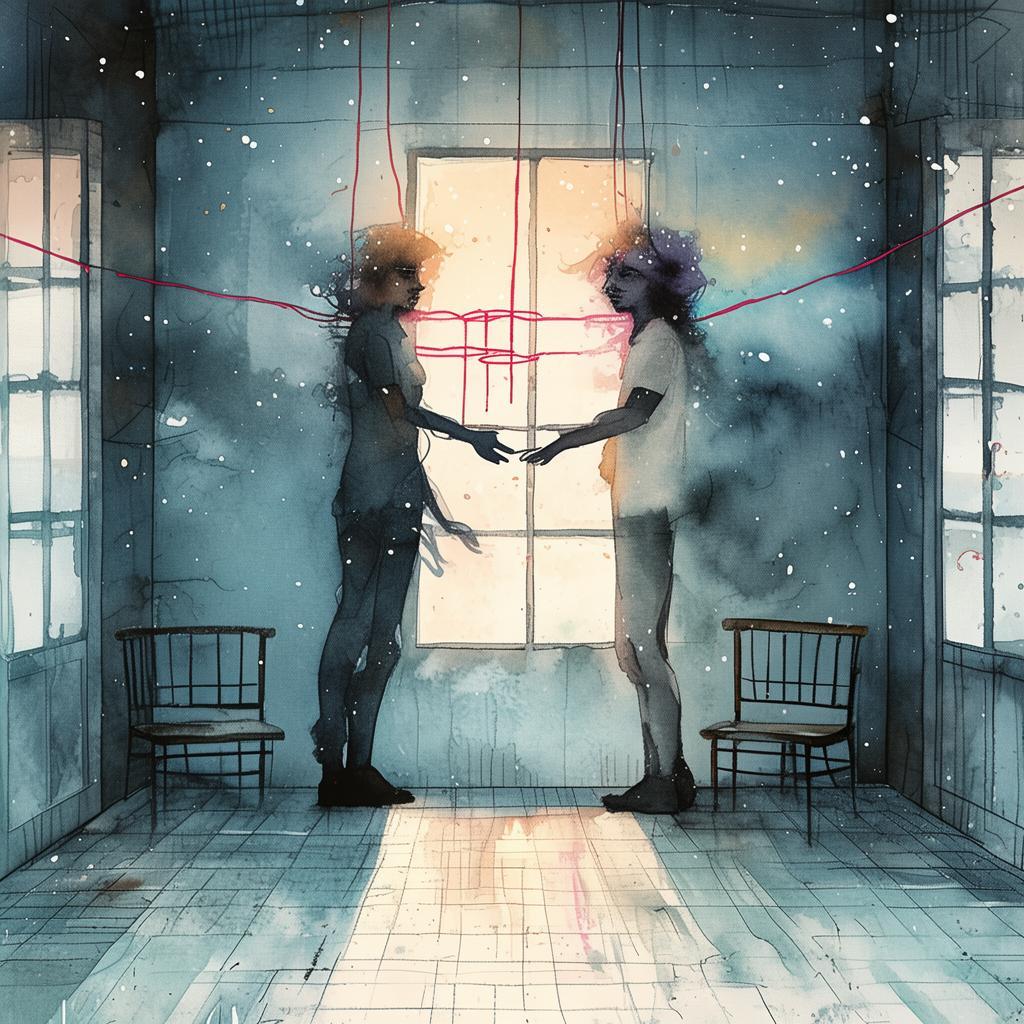The Melody of Love: A Silent Opera
In the heart of a grand opera house, where the air was thick with the scent of roses and the sound of music, there was a silent opera. Not one without a libretto, but one whose performers communicated not with their voices, but with their actions, their bodies, and their eyes.
Sebastian, a renowned tenor, had the voice of an angel, but it was his eyes that held the real magic. They spoke volumes, telling stories that no words could capture. He danced, his movements fluid and expressive, as if he were conducting a symphony with his body.
On the other side of the stage was Liang, a virtuoso violinist, whose fingers danced over the strings with the grace of a ballet dancer. His music was as powerful and expressive as Sebastian’s presence. Together, they created a silent opera, a dance of the heart that moved audiences to tears.
Sebastian and Liang were as different as night and day. Sebastian was the son of a famous composer, raised in the spotlight, his life an open book to all. Liang, however, was a quiet, reclusive artist, whose past was a mystery to everyone, save for the whispers that carried through the corridors of the opera house.
The opera was their life, and the stage was their canvas. But beneath the layers of velvet and the glow of the spotlight, there was a silent dance of emotions that neither dared to acknowledge. They were drawn to each other, their passion for the arts a silent language that only they understood.
It started with glances shared during the dress rehearsals, the unspoken promise in each pair of eyes. It grew into whispers during the intermissions, words that were never spoken aloud but felt deeply by both. They were in love, a love forbidden by the very society that adored their performances.
The opera house was a microcosm of the world they lived in, a place where appearances were everything, and love was a dangerous game. Their secret love affair was a delicate balance, a silent opera that could be torn apart by a single word, a single glance, a single mistake.
One night, as the curtain fell on a particularly emotional performance, Sebastian found himself alone on the stage. He looked at the empty rows where Liang was usually seated, the void a stark reminder of the unspoken truth between them. He closed his eyes and began to dance, his movements a silent plea for the man he loved.

As he danced, a figure appeared at the edge of the stage. It was Liang, his expression filled with a mixture of sorrow and determination. He took the violin from his case and began to play, his fingers deftly weaving through the strings, creating a melody that was both haunting and beautiful.
Sebastian’s dance mirrored the music, their movements in perfect harmony, as if they were part of the same symphony. The audience, who had not noticed the couple before, watched in awe as the two performed a silent ballet that spoke of love and longing.
But as the final note echoed through the house, the lights began to dim. A whisper of danger floated through the air as a shadowy figure stepped into the spotlight, a man whose eyes held the weight of the world.
“Sebastian, Liang, this love you share is forbidden. The time has come to choose between the stage and each other,” the man’s voice was a warning, a threat.
The silent opera had reached its climax. Sebastian and Liang stood there, facing the most difficult choice of their lives. They could continue to perform, to live in the limelight, or they could fight for their love, even if it meant living in the shadows.
As the lights returned to full brightness, they knew their decision. They turned to each other, and in that silent moment, the answer was clear. They would fight for their love, for their silent opera, even if it meant losing everything else.
With that resolve, they took the stage once more, not as performers, but as lovers. Their dance was raw and emotional, a silent ballet that spoke of love’s power to overcome all odds. And as the final note resonated through the opera house, the audience stood in applause, not just for the performance, but for the love that had dared to speak in whispers, in silent ballet, and in a language that only their hearts understood.
In the end, it wasn’t the applause or the adoration of the audience that filled them with pride, but the knowledge that they had danced the silent opera of their love, and in doing so, had found their truest voice.
✨ Original Statement ✨
All articles published on this website (including but not limited to text, images, videos, and other content) are original or authorized for reposting and are protected by relevant laws. Without the explicit written permission of this website, no individual or organization may copy, modify, repost, or use the content for commercial purposes.
If you need to quote or cooperate, please contact this site for authorization. We reserve the right to pursue legal responsibility for any unauthorized use.
Hereby declared.
